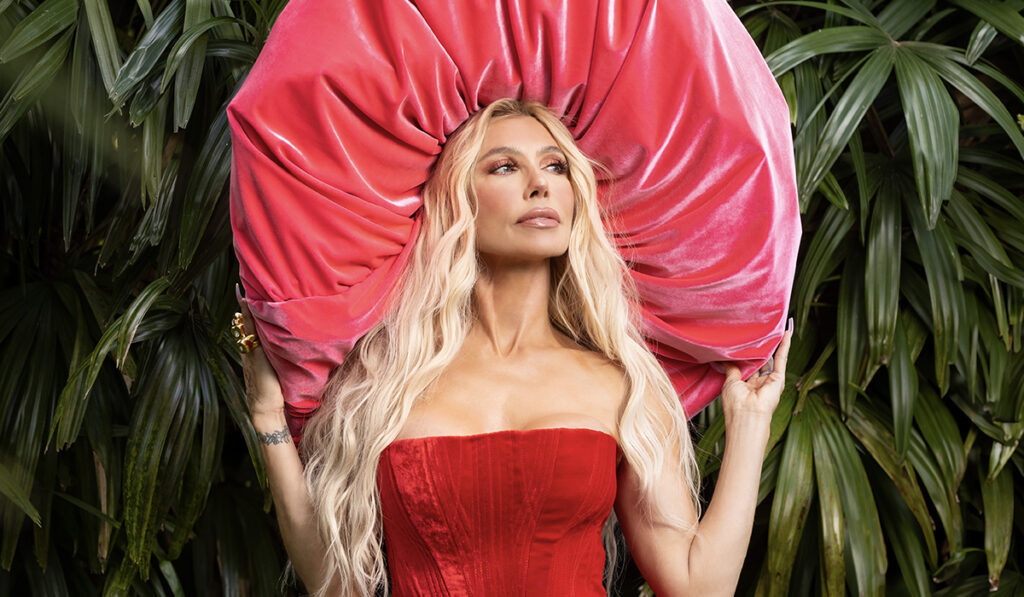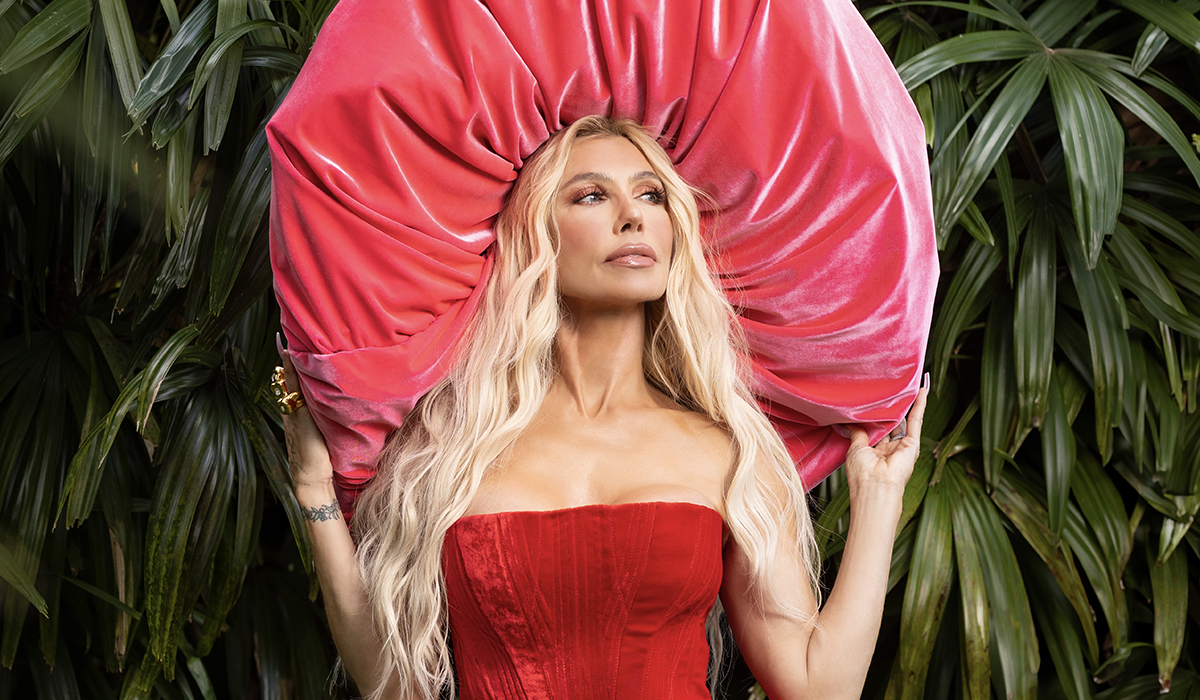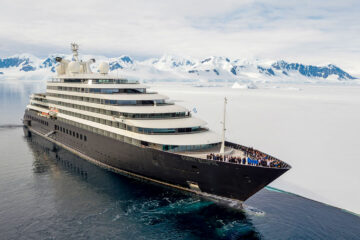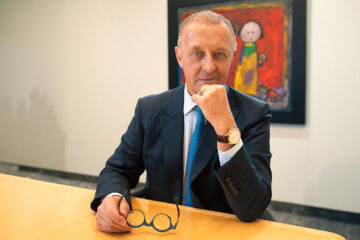Sylvia and Robert Mantella: Passion Players
Sylvia and Robert Mantella’s wildlife conservation sanctuary in Florida is making a difference in the battle to save animals – one species at a time.
If you are fortunate enough to have the means, the true test of your character – indeed, of your humanity – is choosing to use those resources to make a global impact for the greater good, and even more so, to get and stay personally involved in those good deeds. That very much describes the lives and philosophy of the Mantella Corporation’s Robert and Sylvia Mantella, one of Canada’s most philanthropic couples.
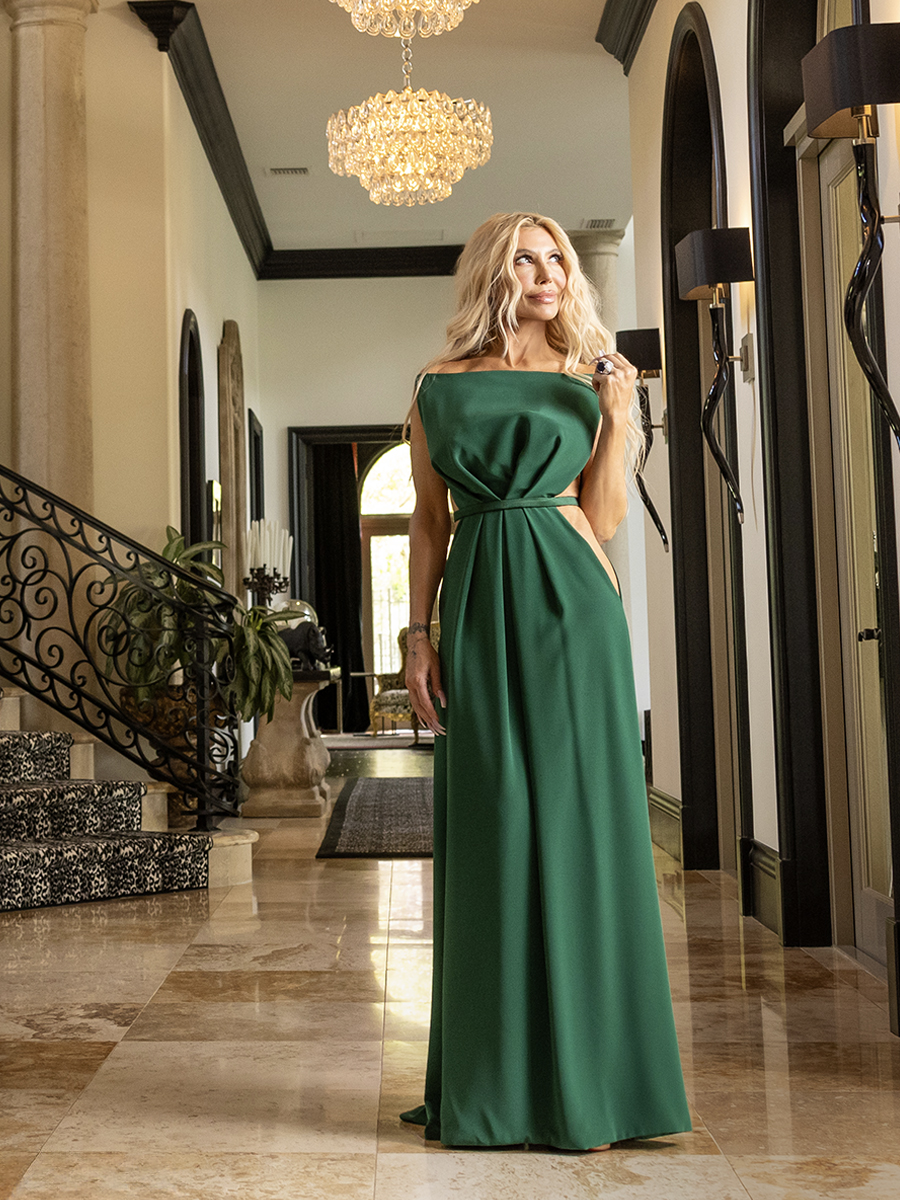
Introduced by mutual friends in 2002, they were close friends before they married in 2007. Robert’s family was in the land development business, and Sylvia came from the world of retailing, telecom and marketing, but they quickly discovered that their deep mutual love and respect for each other would be deepened further by common passions in other aspects of their life together, particularly as they developed their approach to philanthropy.
It should be “beyond just writing a cheque,” says Robert, citing the important lesson in philanthropy Sylvia taught him many years ago. “I don’t think my family was as philanthropic before Sylvia came along, not even close,” he says. “When I first met Sylvia, I would say, ‘You don’t have to do this — we’ll write a cheque. That’s what they need. They need money.’ But Sylvia would say, ‘I need to understand where the money is going. I need to understand that it’s not all going to administration, that it’s actually going to the cause.’ And I would watch as she worked exhaustively, at how much time she would put in. She would travel to Haiti to understand what they were going through, and I think that’s why she is so successful at it, because she really does care. And I care a lot more now through Sylvia, and I’m very proud of her. We weren’t anywhere close to that mindset before Sylvia. She has taught me there is so much more than just writing a cheque.”
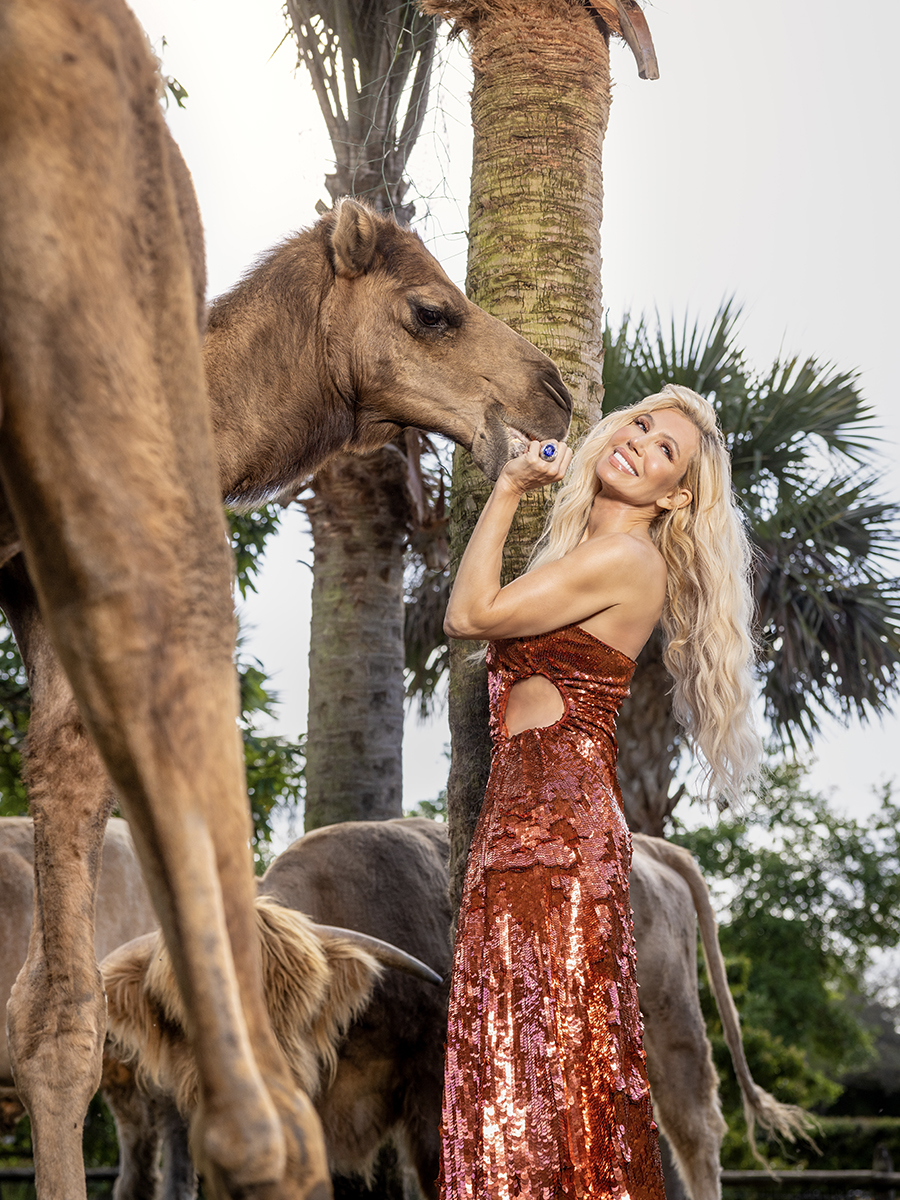
One of Sylvia’s particular passions is conservation, specifically of land, water and animals. In keeping with her true roll- up-your-sleeves-and-get-involved character, she and Robert founded the large Mantella Animal Rescue and Adoption Sanctuary on their South Florida property as a wildlife conservation area. It is now home to more than 250 animals, including lions, leopards, tigers, hyenas, wolves, primates and many more, rescued from conditions of danger, abuse or neglect.
Sylvia acted on her love of animals at a very early age by supporting local animal shelters, she recalls in an exclusive interview she and Robert recently gave Dolce at their Florida home. “My parents would make small donations for $5 or $10 in my name, and that felt really good. Back then, there was no email, so we’d read newsletters, and I’d wait for that mail to come in so I could see what animal was saved or what animal lived where.” As she grew older, she was able to afford to give more, began to understand the value of not just monetary contributions, but of time, she says. “It’s so important and appreciated. I just think it is so important to serve others.”
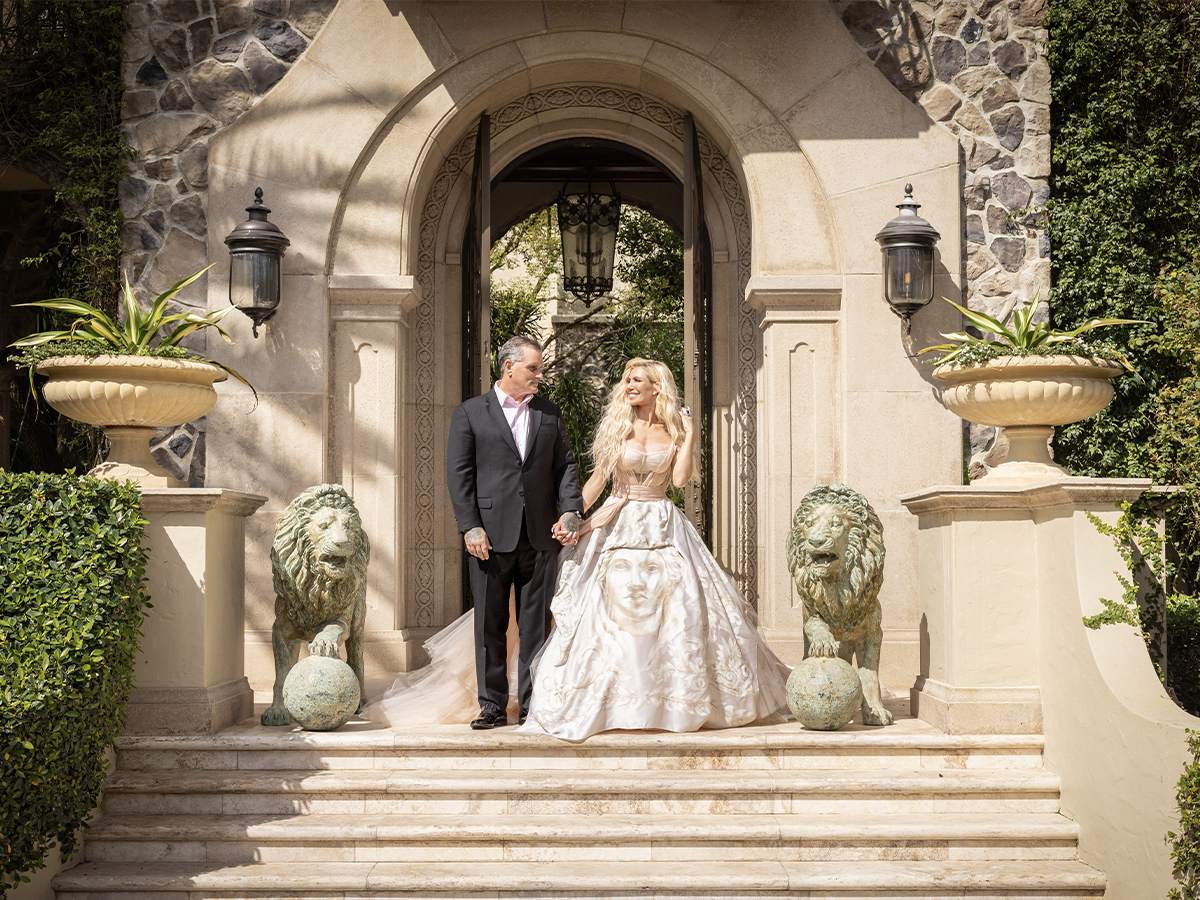
The multi-acre Mantella Animal Rescue and Adoption Sanctuary provides large natural habitats where animals are provided safety and enrichment, and there are over 100 peacocks roaming freely. The property is not open to the public, so it eliminates the animals being exposed to the stress of strangers, smells and noises. There are several well-run zoological facilities that now understand that the needs of the animals are more important than creating an attraction for people. Their purpose is to keep each species going and thriving in welcoming, safe and natural environments.
While we would all like to believe the animal kingdom is some joyful fairytale or animated Disney utopia (cue the singing bluebirds), we all realize that animals don’t enjoy the luxury of food delivery, that savagery and brutality are very real and that, in the wild, it’s often eat or be eaten. It’s no coincidence that, when we conjure up the uncomfortable image of a carcass, our minds are imagining the animal world. Without animal sanctuaries, like the one the Mantella’s have created in Florida, many of these animals wouldn’t live to see the next sunrise.
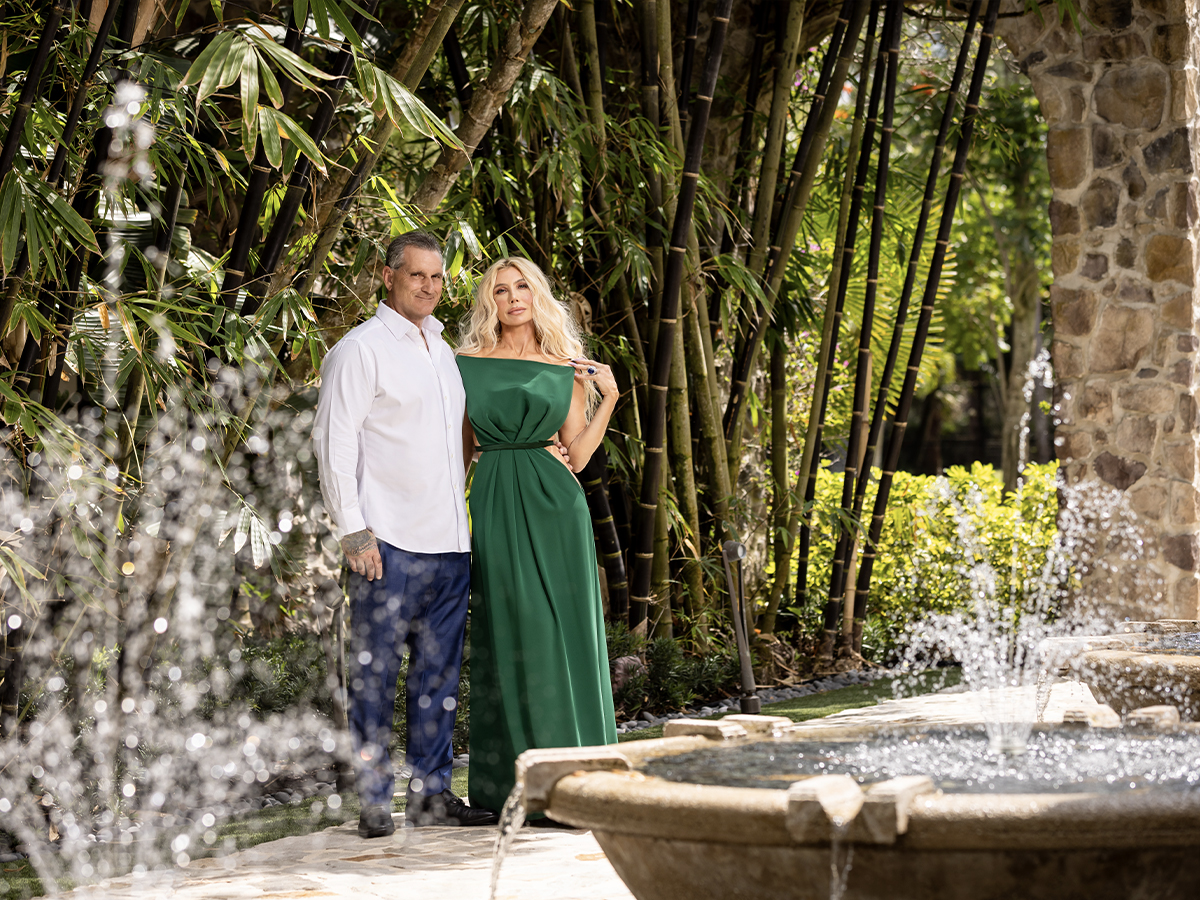
“Children are easier to teach than adults because adults are set in their ways,” observes Robert. “So an adult would look at the big cats we have here and think they’d be better free, but that’s just not true — they’d be dead within hours because these animals have never seen the wild. They are third- or fourth-generation born in the United States and in captivity. They just don’t know how to survive. What we are doing here is giving them all a way to live out their lives with respect and dignity.”
Education is key to improving the viability of wildlife conservation, Sylvia observes. “People are beginning to realize these animals are not pets. They’re not for your entertainment, but that comes with time,” she says. “Twenty or thirty years ago, fashionistas were all wearing fur. I really believe we have to keep trying and moving in the direction of education and of learning about wildlife conservation.” Much like learning from the newsletters about animals she eagerly awaited in her youth, “I use my social media platform to try and share the stories of these animals. It’s not just posting an animal, but sharing that this is his story, this is his journey — it is very well-received, and I’m happy to teach in that way, too.”
When Sylvia references fashion, she certainly speaks from a wealth of knowledge. She has been one of Canada’s style leaders for decades and a supporter of young and emerging designers. A proud Gucci collector, Sylvia has been a member of the Honorary Board for the Toronto Fashion Incubator New Labels, which supports and promotes local Canadian fashion designers.
“What we are doing here is giving them all a way to live out their lives with respect and dignity.”
The couple recently returned from another trip to East Africa, Sylvia’s fifth trip and Robert’s third, where they travelled to meet with local experts and learn firsthand about the latest conservation techniques and ideas they can bring back to their sanctuary to improve it even more. It’s important to them to know where their animals come from.
“We go there to meet with local organizations and learn and see what we can incorporate to give our animals more enrichment from their natural habitat in East Africa,” says Sylvia, and they sometimes import trees or vegetation from what would be the animals’ native environment. “They may not have even seen it before but there is an inherent instinct in the animals,” she says.
The Western world is waking up to animal and wildlife conservation as evidenced by the Canadian government’s decision in November 2023 to enact a ban on importing elephant ivory and rhino horn as well as any hunting trophies containing those parts.
“When I read about that law being passed, I was elated, but I also felt a bit ashamed that it has taken this long,” says Sylvia. “Ivory, elephant tusks and rhino horn have been banned in so many places for decades, so it’s a bit shameful that Canada took that long, but I’m happy it happened. It took really great people who believe in wildlife in Canada to lobby for that.”
“The Big Cat Public Safety Act was enacted in December 2022 to end the private ownership of big cats as pets and prohibit exhibitors from allowing public contact with big cats, including cubs,” adds Robert. “That law prevents anyone from being in a photograph with a lion or a tiger cub, and that will put a lot of those people out of business because they were completely exploiting animals who are in a state of high anxiety in those situations. People started believing these cubs were cute, and ‘maybe I should get one.’ Now you’re not allowed to be in a photo with a small cub, and you’re also not allowed to sell big cats across state lines. So, slowly things are being put in place, and people are learning.”
The passion Sylvia and Robert have for wildlife, endangered species and conservation is palpable when you are speaking to them, whether the setting is an executive boardroom or the middle of their Florida sanctuary surrounded by the constant and harmonious sounds of thriving nature. What is equally impressive is the couple’s depth of knowledge about animals, preservation and wildlife conservation. While we may not all have the resources to begin and operate a world- leading animal sanctuary, Sylvia says anyone can get involved and make a difference, no matter how small.
“You can start small because there are different areas you can involve yourself in,” she says. “You can peacefully protest for change. You can volunteer your time in a shelter or at a bigger organization that has a local chapter. You can attend monthly meetings with certain organizations. But, like anything else, it has to be really genuine, or else you won’t stick to it if you don’t believe in it or it doesn’t fit you. Try different areas and see what lands with you and then keep pursuing that, because it is just so rewarding.”
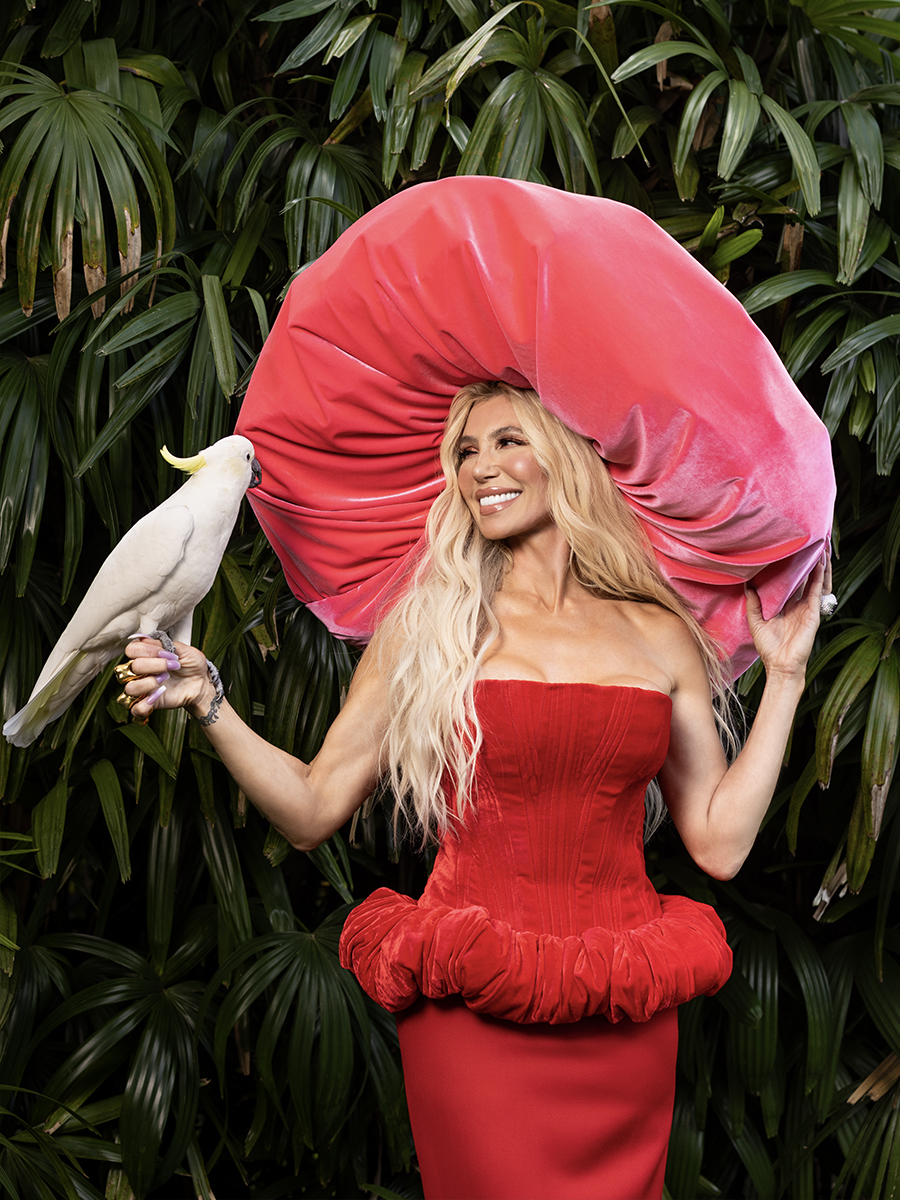
“People are beginning to realize these animals are not pets. They’re not for your entertainment, but that comes with time.”
The Mantellas were extremely gracious hosts to the Dolce team throughout our day at their sprawling sanctuary, providing lunch and introducing us to many of the animals in their idyllic subtropical setting. Robert and Sylvia know every one of their hundreds of animals by name, and their nurturing affection for each of them is clear from their deeply personal interactions, whether it’s the tigers or a pride of lions or a pack of wolves. Each of the animals has a backstory, which the Mantellas take pride in telling. It is a deeply moving and almost spiritual experience to see firsthand such genuine love between humans and animals. What is also clear is the deep respect they both share for the animals and how happy they were to be able to share their passion with Dolce readers.
Over its 14-year history, the Mantella Animal Rescue and Adoption Sanctuary has grown to include hundreds of different animal species (each animal that arrives at the sanctuary is microchipped and catalogued to record where the animal was originally and to provide USDA with details of their progress if and when required) and has become what Robert and Sylvia both describe as a full-time labour of love. From early morning until late in the evening, they are among the animals. If high winds, torrential rain or lighting are forecast (as is common in their part of Florida), they are out in golf carts to check up on the animals.
“Humans are animals, biologically … Humans are not the most important or top animal on the planet.”
That care and attention is only part of the couple’s dedication to animal conservation. One project involves breeding the exceedingly rare Amur leopard, which exists only in the wild, in the especially hostile terrain and harsh climate of the borderlands between China and Russia. Because of poaching, only 37 are accounted for.
“Our resident Amur leopard is named Jasmine. She is now seven, but has been with us since she was six months old, and she will now be going on this journey of artificial insemination. We are very fortunate to work with government bodies in the United States to help her procreate,” says Sylvia. “I know it sounds strange, but that’s the whole purpose of conservation. I can’t possibly let her go somewhere else because she is so precious, so we’re taking part in this, and in the next few months, this process will take place and she will then be able to have and take care of her own cubs.”
The Mantellas are doing their part to battle the scourge of animal extinction on a planet experiencing massive human population growth and our increasing encroachment on what were once natural animal habitats.
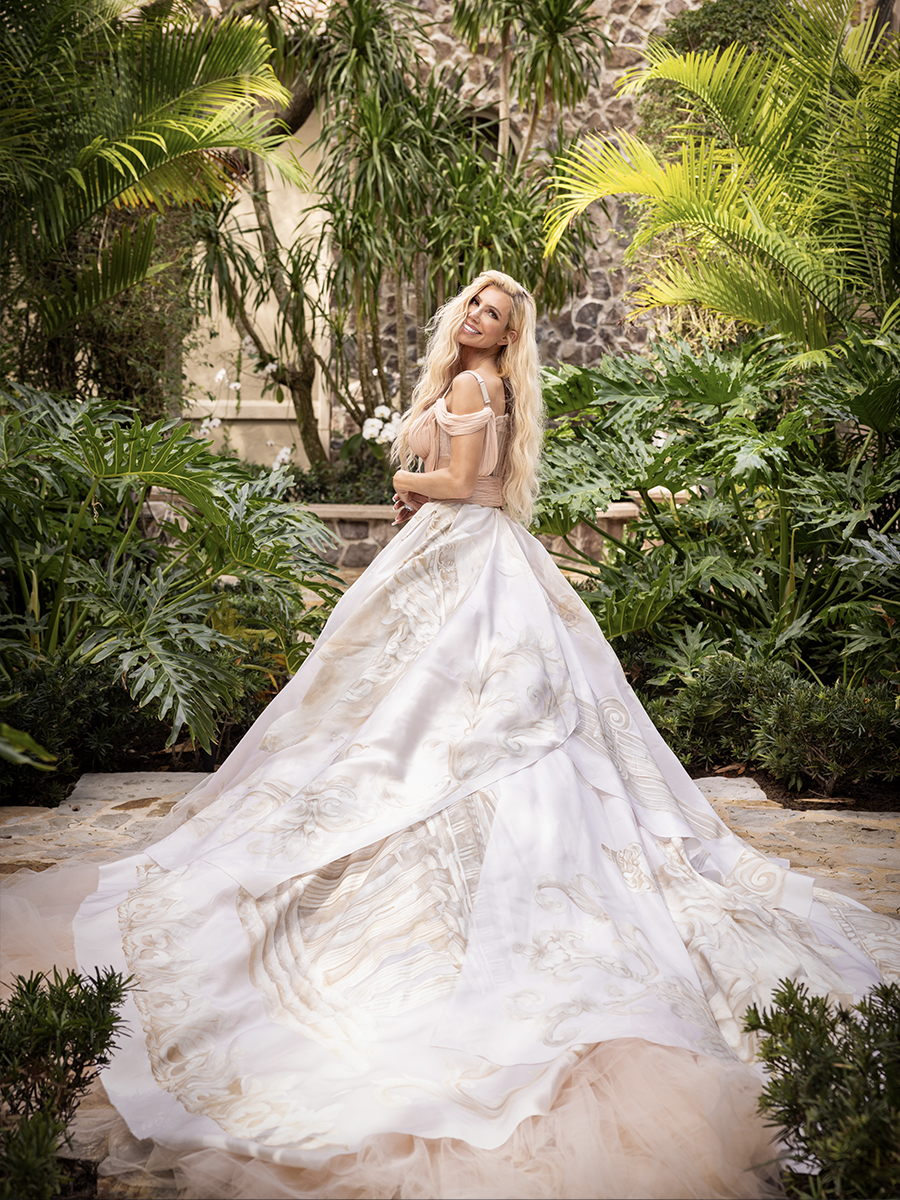
“At least one species goes extinct every day,” says Robert. “People don’t understand the number of species — there are 5,000 mammal species, hundreds of thousands of bird species, but people just focus on the big ones, like elephants, rhinos or lions. And those are animals that need larger habitats, so with human encroachment and destruction of their habitats, they have very little chance if people don’t step in and start saving the animals. In Australia, for example — koala bears only live in Australia as the country never lets them leave to be bred anywhere else — now, after the wildfires hit Australia, the koala bear is near extinction. A lot of the things we do here are only making a small dent, but we’re not alone. A lot of people are doing what we’re doing. There are a lot of people who care about animals, and animal extinction is not just about the dinosaurs. It’s nearly impossible to save all the animals, but you have to try, one step at a time.”
Sylvia and Robert’s foundation is self-funded, and wildlife conservation is just one of many causes they contribute to. Sylvia is particularly dedicated to causes addressing childhood illness.
Robert calls her the nurturing one. “Giving back is extremely important to us,” he says. “It doesn’t have a lot to do with our business, it just has to do with paying it forward. We’ve done well, and we work very hard, but how much do you need when there are so many people and creatures who need help?”
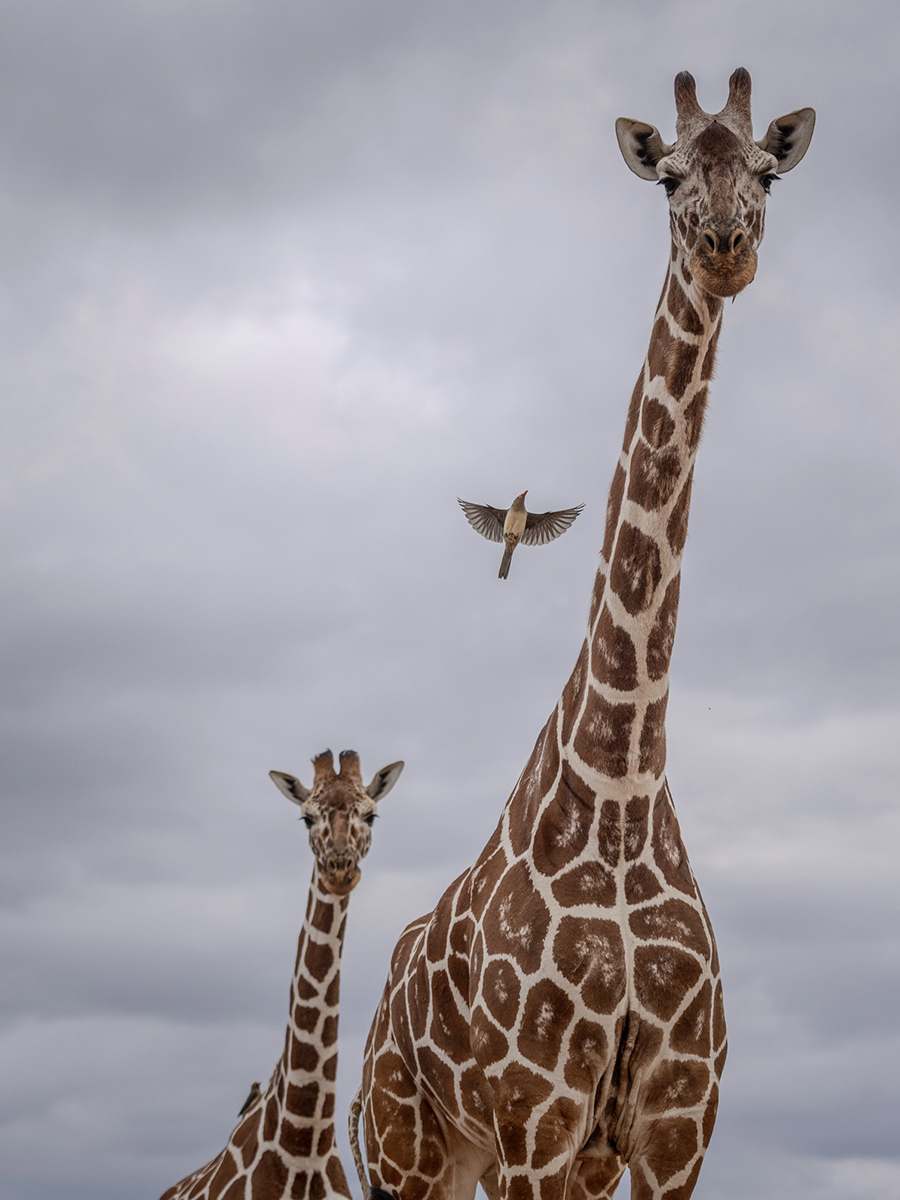
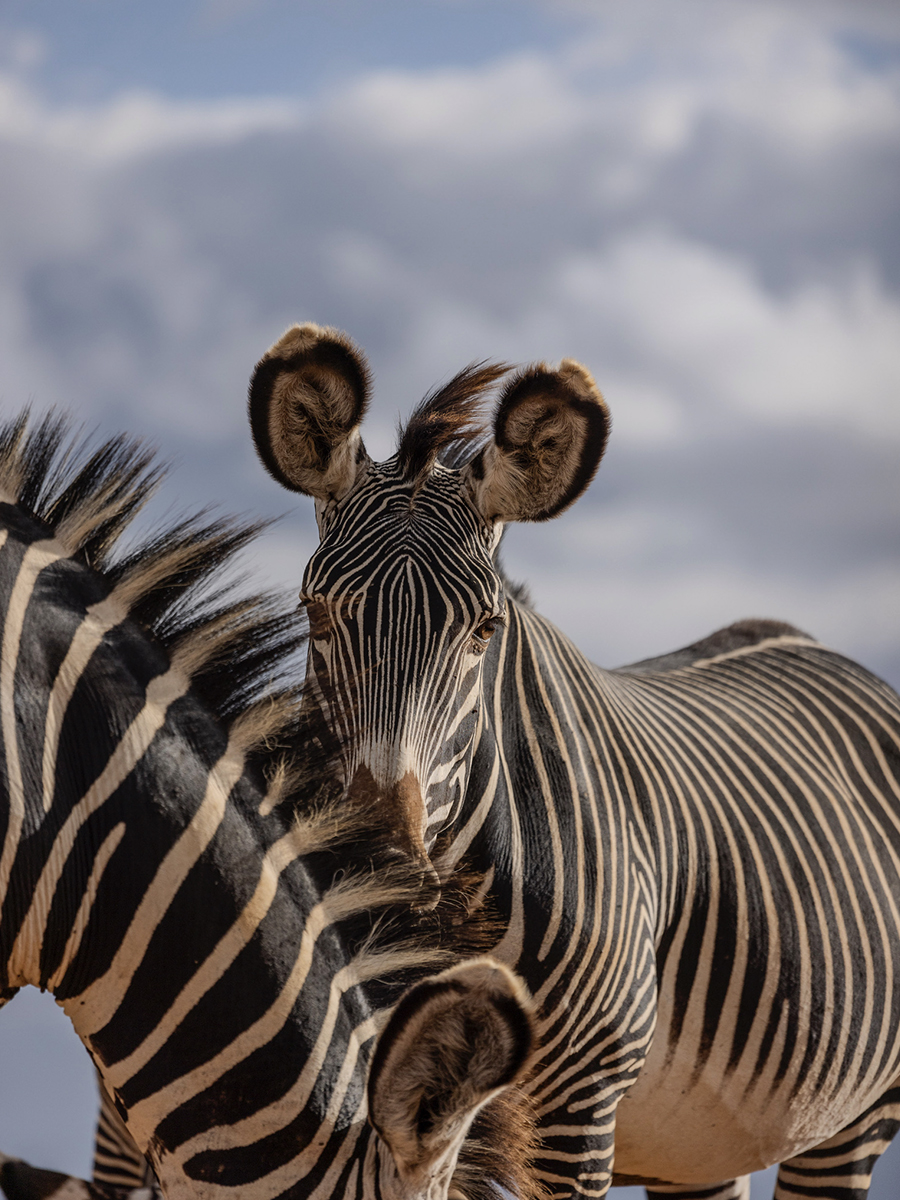
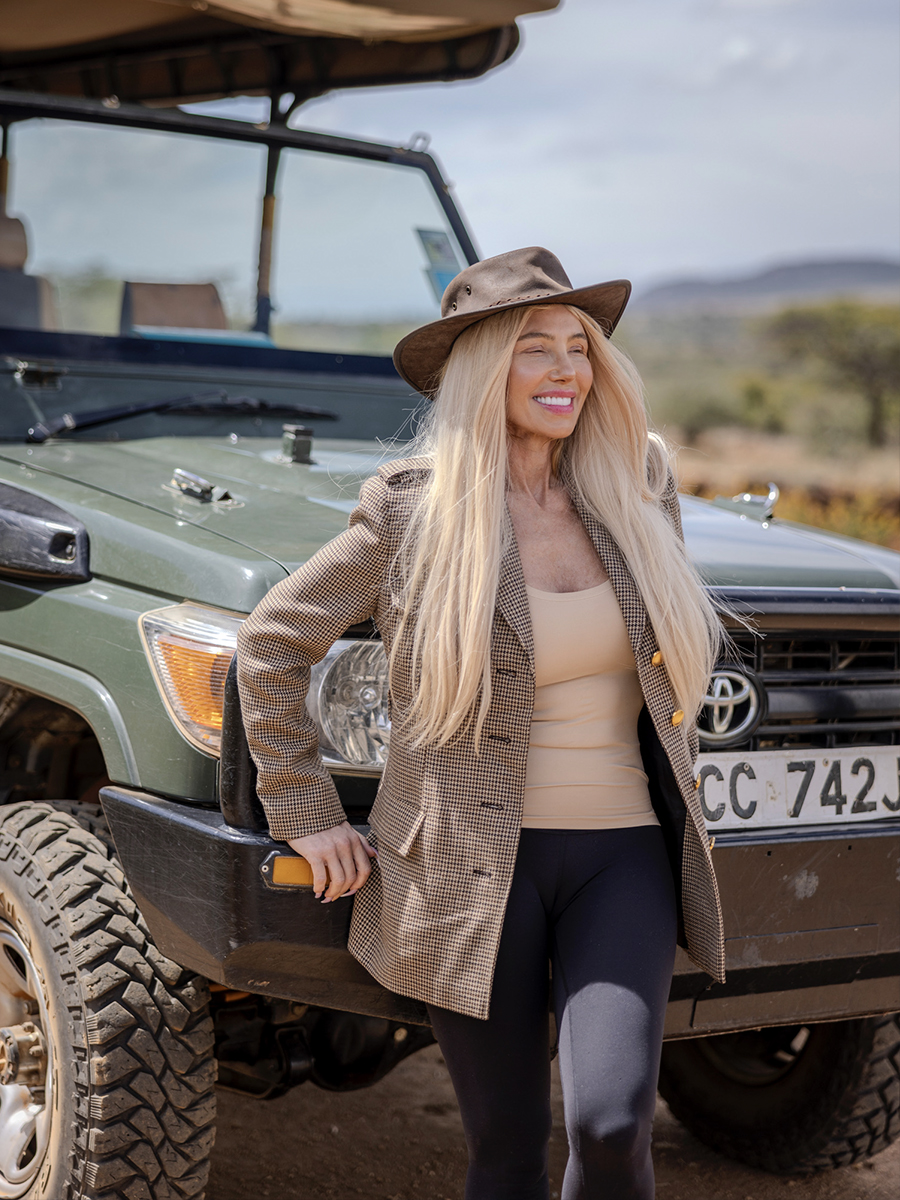
The world needs more people like Sylvia and Robert Mantella. They realize the importance of animals in our very human existence and the urgent need for making a change in how people look at animals and our planet. We cannot live without each other, and it’s of paramount importance that we both survive and coexist.
“I don’t think you can separate us from animals — humans are animals, biologically,” says Robert. “Humans are not the most important or top animal on the planet. They are simply able to manipulate their environment and adapt quickly to change, whereas animals take millions of years to adapt to a change or loss of their habitat resulting in extinction. We’re made a little bit differently so we can build things, and we can think a little bit deeper, but we’re still animals.”
mantellacorporation.com
@sylviamantella
IEDITOR-IN-CHIEF: MICHELLE ZERILLO-SOSA
PHOTOGRAPHER: JESSE MILNS
VIDEOGRAPHER: LISMERY LOYOLA
MAKE-UP BY PATRICK RAHAME
HAIR BY KIRSTEN KLONTZ
AGENCY, P1 MANAGEMENT
LOCATION: MANTELLA RESIDENCE/ANIMAL SANCTUARY, FL (USA)











































































